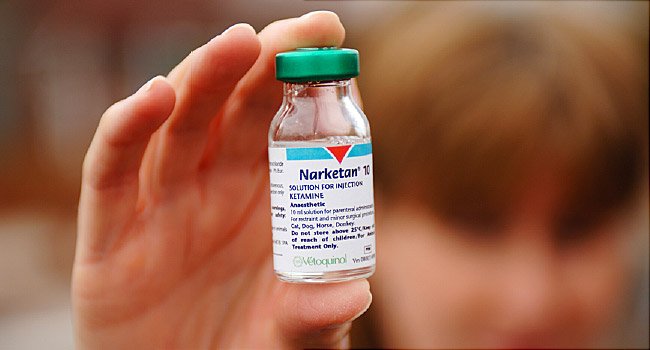Ketamine is a revolutionary drug about which scientists have been conducting research recently. And so far, the indications are turning to be extremely promising.
What are the uses of this highly promising (yet dangerous, if not used as prescribed) drug, Ketamine?
Ketamine is a medication used to induce loss of consciousness or anesthesia. It can rapidly produce relaxation and get rid of severe pain in humans and animals.
Since the 1970s, it has been used to treat veterans’ wounds on the frontline due to its anesthetic capabilities. It is a class III scheduled drug that is approved for use in medical settings as anesthesia.
However, it is also a commonly abused club drug because of its hallucinogenic and dissociative effects.
This drug can be one of the most substantial revolutions in treating people with severe depression in years. Researchers are looking into other possible medical uses of Ketamine, especially in treating severe depression, suicide prevention, and substance abuse.
Find more about “How does Ketamine work for depression?“
Therapeutic Uses
Ketamine is most often used as veterinary medicine. It can induce and maintain general anesthesia before, during, and after surgical procedures.
Ketamine is either given through an intravenous (IV) line or injected into a muscle for medical purposes. It is considered safe as an anesthetic because it does not lower blood pressure or heartbeats.
It is a highly suitable option in disaster zones and less developed countries. It does not need an electrical supply, oxygen, or highly trained staff.
In medical practices, it is used in procedures like:
- Cardiac catheterization
- Orthopedic surgeries
- Skin grafts
- Minor surgical interventions, such as dental extractions or root canal
- Diagnostic procedures on the eye, nose, ear, and throat
It has also been used in medical settings to control seizures in patients with Status Epilepticus (SE) epilepsy. This type of epilepsy can lead to brain damage and death.
However, researchers recommend only using Ketamine after 5 to 6 other options are ineffective in such cases.
There are some adverse effects of using this drug if not appropriately treated. Learn more about “What is Ketamine” and what happens when you overdose.
Ketamine Infusion Therapy
In 2014, researchers found that a ketamine infusion significantly reduces post-traumatic stress symptoms (PTSD) in many patients who have undergone a wide range of traumas.
Other medical uses of Ketamine
- Pain: Ketamine infusions are used to treat severe pain in emergency departments, veterinary medicine, and war zones. The doses are lower than those used for anesthesia, usually referred to as sub-anesthetic doses.
- Anesthesia: Ketamine is used as anesthesia for short-term procedures when muscle relaxation is not required. Ketamine affects differently on the respiratory and circulation systems than other anesthetics. Instead of depressing, it stimulates the circulatory system and causes relatively less breathing problem. Thus, it is safe to use for anesthetic purposes.
As a Drug of Abuse
Ketamine is often used as a “recreational” drug. It produces an abrupt high that lasts for about an hour. Users report euphoria, hallucination, and “out of body” sensations.
However, the prolonged use of Ketamine can cause dependence, tolerance, and withdrawal symptoms. Quitting can lead to depression, insomnia, anxiety, and flashbacks.
Note: it can cause high blood pressure, convulsions, coma, or even death if not used per your doctor’s advice.
Final Words
Ketamine is an anesthetic drug, and it is safe to use in controlled medical practice. But it has abuse potential.
I’m a content writer, an artist, and a mechanical engineer. My hobby is to read and write. https://kbizzsolutions.com/

